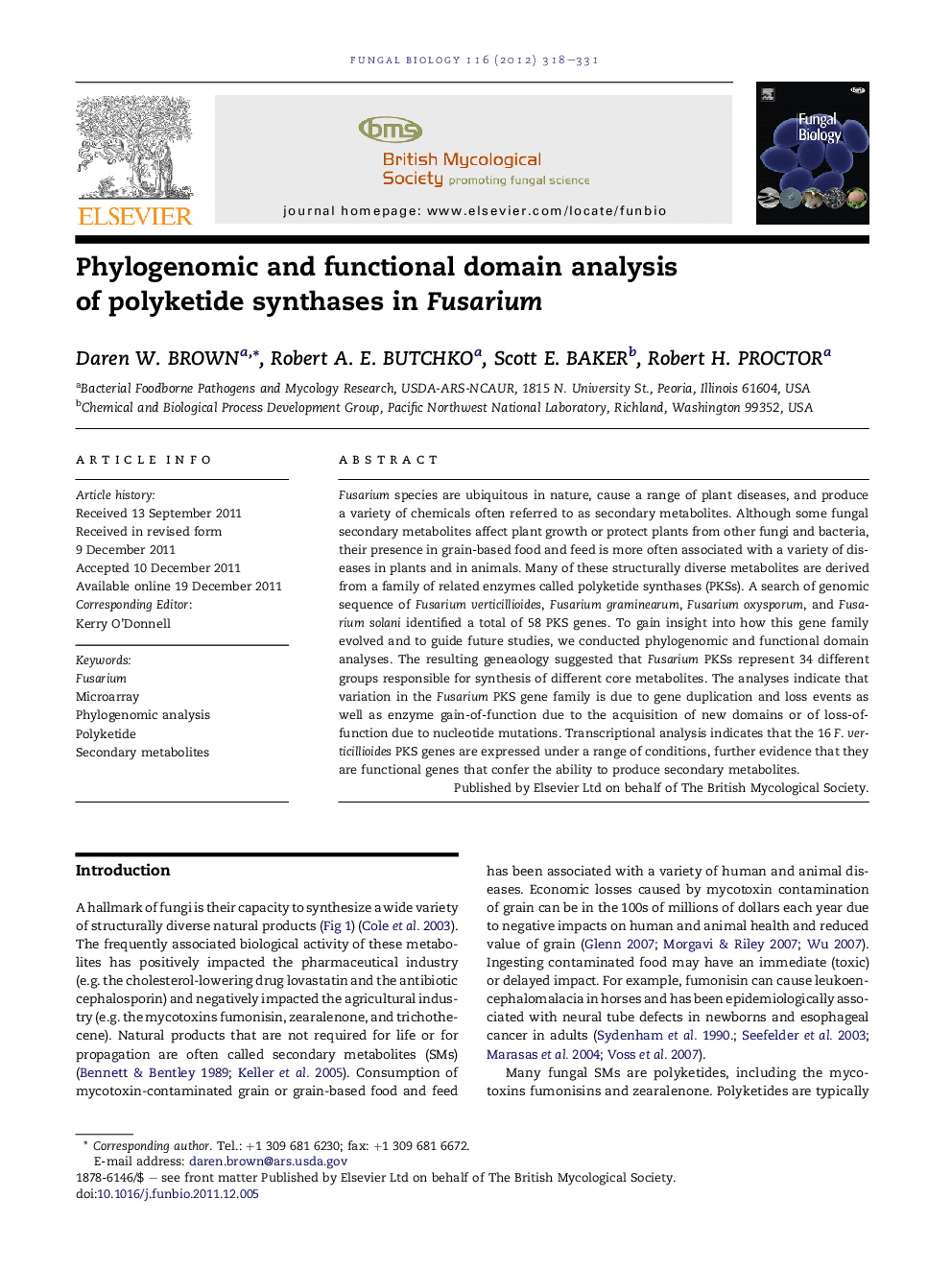| Article ID | Journal | Published Year | Pages | File Type |
|---|---|---|---|---|
| 4356932 | Fungal Biology | 2012 | 14 Pages |
Fusarium species are ubiquitous in nature, cause a range of plant diseases, and produce a variety of chemicals often referred to as secondary metabolites. Although some fungal secondary metabolites affect plant growth or protect plants from other fungi and bacteria, their presence in grain-based food and feed is more often associated with a variety of diseases in plants and in animals. Many of these structurally diverse metabolites are derived from a family of related enzymes called polyketide synthases (PKSs). A search of genomic sequence of Fusarium verticillioides, Fusarium graminearum, Fusarium oxysporum, and Fusarium solani identified a total of 58 PKS genes. To gain insight into how this gene family evolved and to guide future studies, we conducted phylogenomic and functional domain analyses. The resulting geneaology suggested that Fusarium PKSs represent 34 different groups responsible for synthesis of different core metabolites. The analyses indicate that variation in the Fusarium PKS gene family is due to gene duplication and loss events as well as enzyme gain-of-function due to the acquisition of new domains or of loss-of-function due to nucleotide mutations. Transcriptional analysis indicates that the 16 F. verticillioides PKS genes are expressed under a range of conditions, further evidence that they are functional genes that confer the ability to produce secondary metabolites.
► Analysis of 58 Fusarium PKSs found gene gain and loss as well as domain gain and loss-of-function. ► Horizontal gene transfer between Ascomycota contributed significantly to PKS gene diversity. ► The PKS–CAT domain may allow for a novel mechanism for intracellular partition of SMs in fungi.
